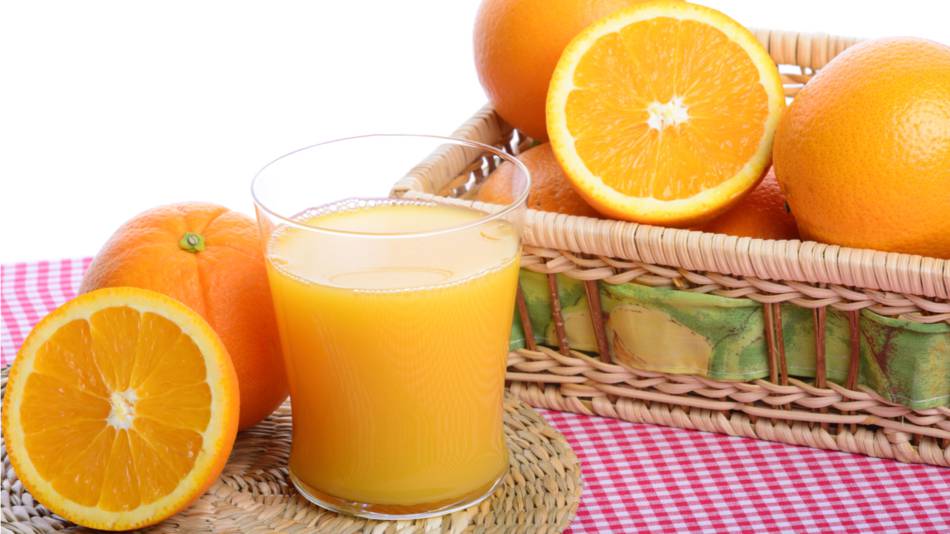
Answer:
Hesperidin is a bioflavonoid found in oranges, lemons and other citrus fruits. It has shown anti-inflammatory, analgesic, antioxidant, anticancer, antiviral, and blood pressure lowering effects in laboratory studies (Garg, Phytother Res 2001). Based on these and other biological effects, hesperidin has been evaluated for numerous conditions, but evidence of benefit is limited and often mixed.
For what conditions has hesperidin been evaluated?
Cardiovascular health
In the body, hesperidin is converted by the colon to hesperitin. Hesperitin is believed to help prevent damage to the lining of blood vessels by increasing the production of nitric oxide (Rizza, J Clin Endocrinol Metab 2011). Nitric oxide is a vasodilator that signals blood vessels to relax, a crucial step for encouraging blood flow to improve circulation and potentially lower the risk of heart disease. Hesperidin supplementation might help lower blood pressure by a small amount, although results are mixed. It does not appear to improve cholesterol, triglyceride, blood sugar or insulin levels.
A study among people with mildly high blood pressure showed that drinking 500 mL (about 17 fl oz) of orange juice containing either 345 mg of natural hesperidin or enriched to contain 600 mg of hesperidin in the "2S" form (which is the predominant natural form in citrus fruit and is thought to be more bioavailable than the R form, which becomes more prevalent during processing of hesperidin) daily for 12 weeks lowered average systolic blood pressure by 6.35 and 7.36 mm Hg, respectively, compared to baseline — although only the later was statistically significant compared to a control drink. There was no significant improvement in diastolic blood pressure or pulse pressure compared to the control drink for either hesperidin-containing drinks. Both orange juices provided other bioflavonoids, which may also possess biological properties. The study was funded by the Florida Department of Citrus (Valls, Eur J Nutr 2021).
A study in healthy, overweight men showed that drinking 500 mL (about 17 fl oz) of orange juice containing 292 mg of natural hesperidin (along with other bioflavonoids) or taking capsules providing 292 mg of hesperidin from 90% orange bioflavonoid complex daily for 4 weeks lowered diastolic blood pressure by a modest 5 mm Hg, but did not affect systolic blood pressure, blood sugar, insulin, or cholesterol levels compared to placebo. Interestingly, drinking orange juice and, to a lesser extent, taking hesperidin supplements increased blood vessel dilation after eating compared to placebo, suggesting improved endothelial function. However, nitric oxide levels were not increased, suggesting that other factors may be responsible for the effect (Morand, Am J Clin Nutr 2011). This study was also funded by the Florida Department of Citrus.
However, another study among healthy, overweight people showed that taking 450 mg of hesperidin extracted from sweet orange peel (Cordiart, BioActor BV — which funded the study) as the "2S" form in the morning before breakfast for 6 weeks did not improve flow-mediated dilation (a measure of endothelial function), blood pressure, cholesterol or triglyceride levels, or blood sugar and insulin levels compared to placebo (Salden, Am J Clin Nutr 2016).
A study among people who recently had a heart attack showed that taking 600 mg of hesperidin daily for 4 weeks improved some markers of inflammation such as E-selectin, but did not improve other markers such as interleukin (IL)-6 or high-sensitivity C-reactive protein. Hesperidin supplementation did not improve cholesterol or triglyceride levels compared to placebo (Haidari, J Am Coll Nutr 2015).
Although higher dietary intake of citrus bioflavonoids, including hesperidin, has been associated with a reduced risk of ischemic stroke, it is unclear if supplementing with hesperidin is beneficial (Pontifex, Front Neurosci 2021).
Hesperidin, in combination with diosmin, has been shown to reduce limb swelling and improve quality of life compared to placebo in people with chronic venous insufficiency (poor circulation that can cause swelling in the legs) (Belczak, Phlebology 2014). However, the combination may be less effective than other supplements such as oxerutins (which are also used to improve blood flow) or Pycnogenol (Cesarone, Clin Appl Thromb Hemostat 2006; Cesarone, Angiology 2006), and it is uncertain whether the benefit, if any, is due to diosmin, hesperidin or the combination.
Cognitive function
Animal studies have suggested that food rich in flavonoids, including hesperidin, may help improve age-related memory deficits and may offer neuroprotective effects, possibly through anti-inflammatory or antioxidant effects, or by reducing mitochondrial dysfunction (which may predispose people to certain neurodegenerative conditions) (Pontifex, Front Neurosci 2021). A study in healthy, older adults (average age 67) found that consuming 500 mL (about 17 fl oz) of orange juice containing about 275 mg of natural hesperidin as well as other bioflavonoids in two divided doses daily for 8 weeks improved global cognitive function (which was calculated by combining results of all cognitive tests) but not executive function or episodic memory compared to a control group that consumed orange juice with low amounts of bioflavonoids. Florida Citrus, which produced the juice used in this study, also helped design the research, and the study was partially funded by the Florida Department of Citrus (Kean, Am J Clin Nutr 2015).
It is uncertain if hesperidin is beneficial for dementia, Alzheimer's disease, Parkinson's disease or other neurological conditions.
Depression
Bioflavonoids such as hesperidin may have antidepressant effects, which have been attributed to antioxidant, anti-inflammatory, and neuroprotective effects. A study among younger adults with depression found that drinking 190 mL (about 6.4 fl oz) of orange juice containing about 74 mg of natural hesperidin along with other bioflavonoids twice daily (before breakfast and dinner) for 8 weeks tended to increase levels of brain-derived neurotrophic factor (BDNF), a protein that plays a role in the maintenance and survival of nerve cells and that helps regulate "synaptic plasticity" (the main mechanism for information storage and learning in the brain) and decrease scores on a depression scale, compared to baseline. However, the differences were not statistically significant compared to those drinking orange-flavored cordial with lower amounts of bioflavonoids (Park, Nutrients 2020).
Other uses
Numerous laboratory studies have demonstrated that hesperidin can cause cell cycle arrest and cell death in various types of cancer cells. However, it is uncertain if hesperidin reduces cancer progression or metastases in humans (Pandey, Nutr Res 2021).
Several studies have evaluated hesperidin, in combination with other ingredients, in the treatment of lymphedema in breast cancer patients, but results have been mixed and it is unclear whether the benefits, if any, are due to hesperidin or other ingredients (Cluzan, Lymphology 1996; Pecking, Angiology 1997).
Is it safe?
When taken in appropriate amounts (up to 600 mg daily), hesperidin is generally considered to be safe when used short-term (up to about six months). Side effects are uncommon but may include diarrhea, nausea or upset stomach (Nardarajah, Res J Pharm Technol 2014). The long-term side effects are unclear.
Cost
Capsules containing 500 mg of hesperidin (often as bitter orange extract standardized to 90% hesperidin) cost about $15 to $18 for 60 capsules (about 25 to 30 cents per 500-mg serving). Hesperidin powder, which is essentially what is found in capsules, is slightly less expensive, at about 13 to 17 cents per 500-mg serving.
The Bottom Line
Overall, hesperidin might slightly help lower blood pressure, but hesperidin does not appear to improve cholesterol or triglyceride levels or improve blood sugar or insulin levels. Hesperidin may improve circulation in the legs, although it appears to be less effective than certain other supplements. Hesperidin may improve certain measures of cognitive function in older adults, but even those results are preliminary. It is unclear if hesperidin is beneficial for other conditions including depression, cancer, stroke or lymphedema. Short-term studies suggest that hesperidin is safe, but the safety of long-term use is uncertain.
Join today to unlock all member benefits including full access to all CL Answers and over 1,400 reviews.
Join NowAlready a member? Sign In Here.
Join now at www.consumerlab.com/join/


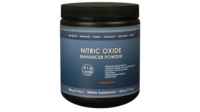
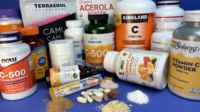
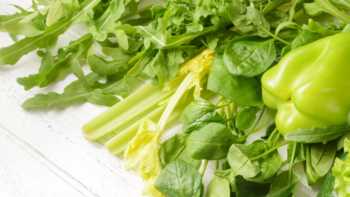
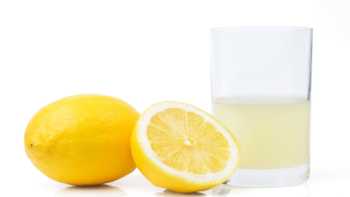


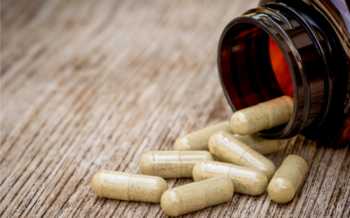
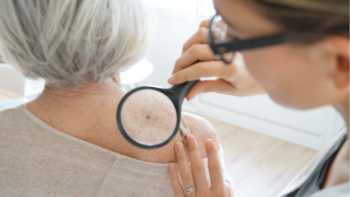

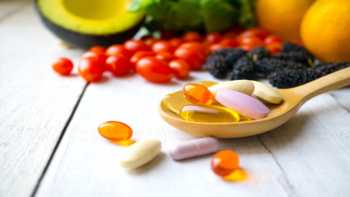





Submit your comment
This feature is restricted to active members.
Join now to add comments and get all member benefits, including over 1,400 reviews.
Join NowAlready a member? Sign in here.